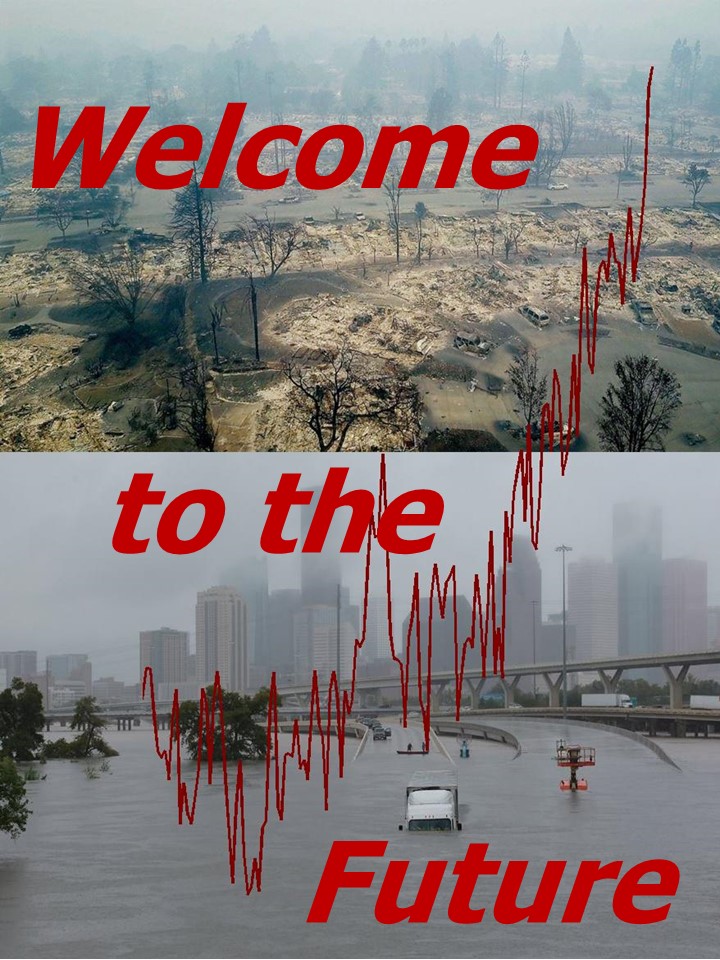Is the apocalypse upon us?
Lately the news has been full of reports of record fires, floods and other dangerous phenomena. Pundits debate how much "natural" disasters can be blamed on human-caused global heating, and what we can expect from future changes in climate.
What does the science say about global heating? Why do scientists think it is caused by people? How big an effect are we likely to see in the future, and what dangers or opportunities does it bring?
Some of the widest divergences in opinion come when evaluating how rising temperatures may affect things people care about, such as agriculture or health. Many explanations of these topics are either rather polemical or so careful that it is hard for people to draw conclusions. In addition to looking at the basic science determining global climate, we will also examine the risks from climate change impacts.
Scientific Level of the Course
The course is designed to be helpful to students in a wide range of disciplines. In a sense, no one is an expert on climate change, because the subject encompasses diverse topics from many disciplines, including atmospheric dynamics, atmospheric chemistry, physical oceanography, geology, and ecology. Therefore the course is less focussed on an in-depth study of one topic than on a number of topics needed to understand the big picture. The course is less mathematical than most courses in the Climate Dynamics curriculum. Math in the course is generally at the level of high school algebra.The philosophy of the course is that Climate Dynamics students benefit by attaining a broad overview of the defining climate problem of their time, and students from other departments benefit from a deeper dive into the physical climate than they may have obtained elsewhere.

bottom: Houston submerged by Hurricane Harvey
Last modified: 26 January 2022